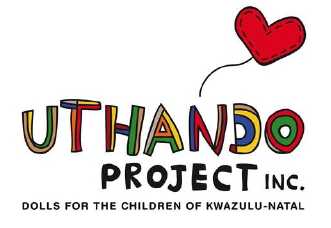dlalanathi Dolls
dlalanathi provides training about sensitive relationships for carers, mothers, teachers and children across city and rural communities. They also work with other NGOs who hold their own visions and they participate in national and international conferences. Our dolls may be used in these trainings, at conferences and in group work, as well as in general play and story telling. Because of these many roles, they require a very varied range of dolls.


















Dolls for grief and happiness
“Dolls for grief and happiness” includes extraordinary character dolls which encourage significant conversations. dlalanathi encourages conversations about subjects which are often difficult for adults to have with children. These may include death, dying, sickness, loneliness, depression and grief. Dolls with different facial expressions (sad, happy, angry, confused) may suit different situations. The materials used can give solace to the child if they are indestructible, soft, flexible and of interesting texture. Children can spend ages plaiting or stroking their doll’s hair.
Add extra clothes in the doll’s shoulder bag for more individual play and fun with another child or carer. The dolls can be knitted or sewn and suit any age from newborn to young adult.


















Hand puppets for children and adults
Hand puppets for different sized hands are ideal for counselling work and for immediate use in trainings and conferences. Give them different facial expressions and textures. See our hand puppet patterns or design your own.












Story telling dolls
dlalanathi make fabulous use of many traditional stories in their exploration of character, personal history and relationships. Highly individual dolls often go to dlalanathi, as they may be too exceptional to be given to one child. (This would be singling the child out, when all those around receive our Classic Sewn Doll.) South African animal dolls can animate stories too. Our book “100 Dolls, Countless Hearts”, is full of sewn and knitted animal patterns.












Families of dolls
Playing with a family of dolls of different generations can allow children to express their feelings about parents, relatives, friends and siblings. One dollmaker could make this family of dolls, or a group of dollmakers could each make one member.












Mother and baby pair
Children love playing mother and child. It is such a simple addition to a mother doll to have a small baby. Include a knitted, crocheted or fabric doll wrap of a size to tie the baby to the mother’s back.


















Child wrap
Children delight in tying their doll onto their back to be “grown up”. Make the child wrap of soft, flexible fabric at least 140 cms long and 35 cms wide. If the fabric doesn’t fray, no need to hem it.
Making their own dolls
Our dolls also fit into dlalanathi’s own doll making programmes. Within much of their long term training commitments, dlalanathi often includes the actual making and using of dolls.
Through this approach, hundreds of dolls have been made by local dollmakers in KZN in an exciting and sustainable way. This is why we do not send them our standard ‘boy and girl’ dolls, but support them to make their own.
Visiting Australian dollmakers have had the privilege of teaching dollmaking with dlalanathi at workshops for NGO leadership, usually in Pietermaritzburg. There have been three visits so far, all forging strong links with each of our partners in KZN, many NGOs and literally hundreds of people attending these workshops. Read more about Dollmaking in KZN.
dlalanathi are enthusiastic about the power of play for young and old. Their workshops often explore each person’s own childhood. In these cases, a doll may be a trigger for memories which become useful insights for the present situations.

